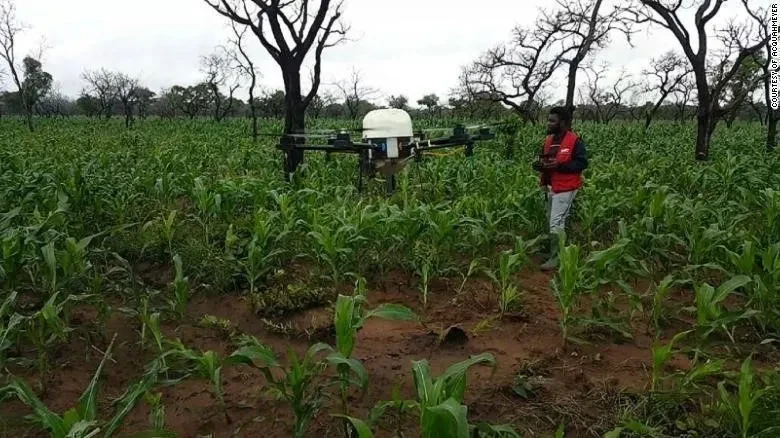Maximize Your Crop Yield With Smart Farming Techniques
- August 20, 2024
Introduction: Farming can be challenging, but adopting modern techniques can make a significant difference in your crop yield.
- For Better Quality of Agriculture: Utilize GPS and sensors to optimize planting and fertilization, ensuring your crops get exactly what they need.
- Soil Testing: Regularly test your soil to understand nutrient levels and amend it accordingly for better crop health.
- Water Management: Implement efficient irrigation systems, such as drip irrigation, to conserve water and ensure consistent moisture.
Conclusion: Embrace these smart farming practices to boost your productivity and sustainability. For personalized advice and solutions, contact our agricultural experts today!
- Seasonal Farming Tips for a Large Quantities Harvest
Introduction: Adjusting your farming practices according to the seasons can lead to a more successful harvest.
- Spring: Focus on soil preparation and planting early varieties to take advantage of the growing season.
- Summer: Monitor crops for pests and diseases and ensure enough watering during hot months.
- Fall: Harvest crops at peak maturity and prepare the soil for the next planting season.
- Sustainable Farming: Practices for a Greener Future
Introduction: Sustainable farming is not only good for the environment but also for your long-term productivity.
- Crop Rotation: Alternating crops each season helps maintain soil health and reduce pest infection.
- Organic Farming: Use organic fertilizers and pest control methods to minimize chemical use and improve soil quality.
- Water Conservation: Implement rainwater harvesting and efficient watering techniques to reduce water waste.
Conclusion: Sustainable practices contribute to a healthier environment and better yields. Contact us to learn more about contains these practices into your farm.
- How to Start Organic Farming: A Beginner’s Guide
Introduction: Organic farming offers numerous benefits, including healthier produce and reduced environmental impact.
- Soil Preparation: Begin with organic soil amendments like compost and green ingredients to healthy the soil.
- Pest Management: Use natural predators and organic pesticides to manage pests without chemicals.
- Certification: Research and follow local guidelines to obtain organic certification for your produce.
Conclusion: Transitioning to organic farming can be rewarding and sustainable. For guidance and support on starting your organic journey, get in touch with our experts!
- Soil Testing: Why It’s Crucial for Successful Farming
Introduction: Regular soil testing is essential for understanding soil health and enhance crop growth.
- Nutrient Levels: Soil tests reveal nutrient deficiencies and help in precise fertilization.
- pH Balance: Maintain optimal soil pH levels to enhance nutrient availability for your crops.
- Soil Texture: Understand soil texture to make informed decisions about irrigation and crop selection.
Conclusion: Regular soil testing ensures your crops receive the right nutrients for optimal growth. For comprehensive soil testing services, reach out to us!
- The Benefits of Composting: A Sustainable Solution for Your Farm
Introduction: Composting is an eco-friendly way to recycle organic waste and enrich your farm’s soil.
- Nutrient-Rich Soil: Compost adds essential nutrients to the soil, improving plant growth.
- Waste Reduction: Reduce farm waste by turning organic materials into valuable compost.
- Soil Structure: Improve soil structure and moisture retention with well-decomposed compost.
Conclusion: Composting enhances soil health and sustainability. For help setting up a composting system on your farm, contact our team!


Comments
-
Leave Comment about this
